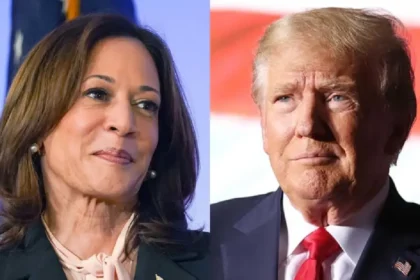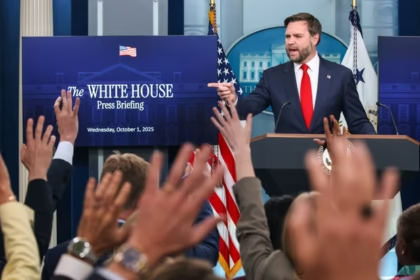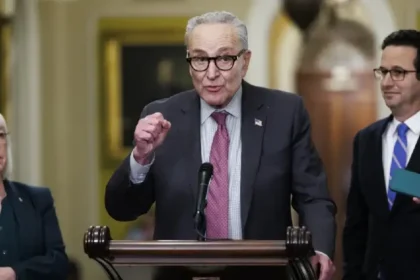In a powerful intersection of personal struggle and political responsiveness, the Trump administration has stepped in to help expedite medical treatment for Scott Adams, the controversial creator of the Dilbert comic strip, after he made an emotional public plea for assistance in securing timely cancer care.
Adams, 68, revealed last week that he had been diagnosed with an aggressive form of cancer and was facing delays in approval for an experimental treatment. The news spread quickly online after he posted a series of videos and social media messages describing his worsening condition and the bureaucratic hurdles that threatened his chances of survival.
The public outcry reached the White House within hours. By the following day, officials from the Department of Health and Human Services and the Food and Drug Administration had reportedly contacted Adams’ representatives to facilitate an emergency review of his treatment access request.
In a statement released Saturday, a White House spokesperson confirmed the administration’s involvement, noting that President Donald Trump personally directed senior staff to “ensure that red tape does not stand in the way of saving an American life.”
A Public Plea That Went Viral
Adams’ video — part confessional, part call to action — quickly garnered millions of views on X (formerly Twitter) and other platforms. In it, he detailed how his oncologists had recommended a promising but limited-access therapy, yet delays in approval from insurance providers and federal regulators had left him in limbo.
“I’m running out of time,” Adams said in the video. “If there’s anyone in government who can help, please — I’m asking as a citizen, not a celebrity. Help me stay alive.”
The plea resonated far beyond his fan base. Supporters across the political spectrum began tagging public officials, including President Trump, urging intervention. Prominent media figures echoed the call, noting that the case highlighted broader issues within the American healthcare and regulatory systems.
Within 24 hours, Trump responded directly on Truth Social:
“We will not let bureaucracy decide who gets to live. I’ve instructed my team to act immediately. Scott, we’ve got your back.”
The post drew widespread attention and reignited debates over the role of government in personal healthcare decisions.
The Trump Administration’s Rapid Response
According to officials familiar with the situation, the administration’s rapid mobilization involved coordination between the FDA, HHS, and several hospital systems offering access to the treatment Adams needs. A review panel was reportedly convened under “compassionate use” provisions that allow terminally ill patients to receive experimental medications not yet fully approved for public use.
Within days, Adams confirmed that his application had been fast-tracked. In an update video, he thanked President Trump and federal health officials, saying, “They listened. I don’t know what comes next medically, but at least I have a chance.”
Trump’s decision to intervene was met with both praise and criticism. Supporters hailed it as an example of leadership and humanity. Detractors, however, argued that individual intervention by the president should not be necessary for Americans to receive timely healthcare.
Broader Implications for Healthcare Reform
The episode has reignited discussion about healthcare bureaucracy, compassionate-use policy, and the balance between regulation and urgency. Analysts noted that while Trump’s intervention may save one man’s life, it also exposes systemic weaknesses that affect thousands.
“Scott Adams’ case illustrates what happens when ordinary citizens get caught between innovation and red tape,” said Dr. Laura Benton, a policy expert at the American Medical Governance Institute. “This is a deeply human story, but it’s also a wake-up call for policymakers.”
The Trump administration has long framed healthcare reform as part of its broader “America First” agenda, emphasizing patient choice, reduced regulatory barriers, and fast-track drug approvals. The president’s swift involvement aligns with his history of personal engagement in high-profile cases — from veterans’ medical delays to corporate shutdowns affecting American workers.
Public Reaction: A Nation Divided, Again
Social media reactions to the story were predictably divided. Trump supporters flooded online forums with praise, calling him “a president who acts, not talks.” Others questioned the precedent of presidential involvement in individual medical cases.
One viral post summarized the tension succinctly:
“I’m glad Scott Adams got help. But what about the thousands of Americans who don’t have the president’s attention?”
Despite the controversy, Adams’ supporters argue that the visibility of his case could lead to meaningful policy change. Some lawmakers have already proposed reviewing the FDA’s compassionate-use procedures to make emergency approvals more transparent and accessible.
A Personal Story in a Political Storm
Scott Adams, known for his satirical takes on corporate life and political commentary, has often courted controversy. Over the years, he has both praised and criticized Donald Trump, earning a mixed reputation among fans and critics alike. Yet in this moment of personal crisis, politics faded into the background.
“I may not agree with everything the president says,” Adams said in a follow-up statement, “but today I’m just grateful. His team moved mountains, and I’m alive because of it.”
For President Trump, the episode adds another chapter to his narrative of direct, decisive action — particularly in cases that capture public attention. Whether viewed as genuine compassion or political theater, the result remains the same: one man’s hope renewed, and a nation reminded of how fragile the boundary between policy and humanity can be.











